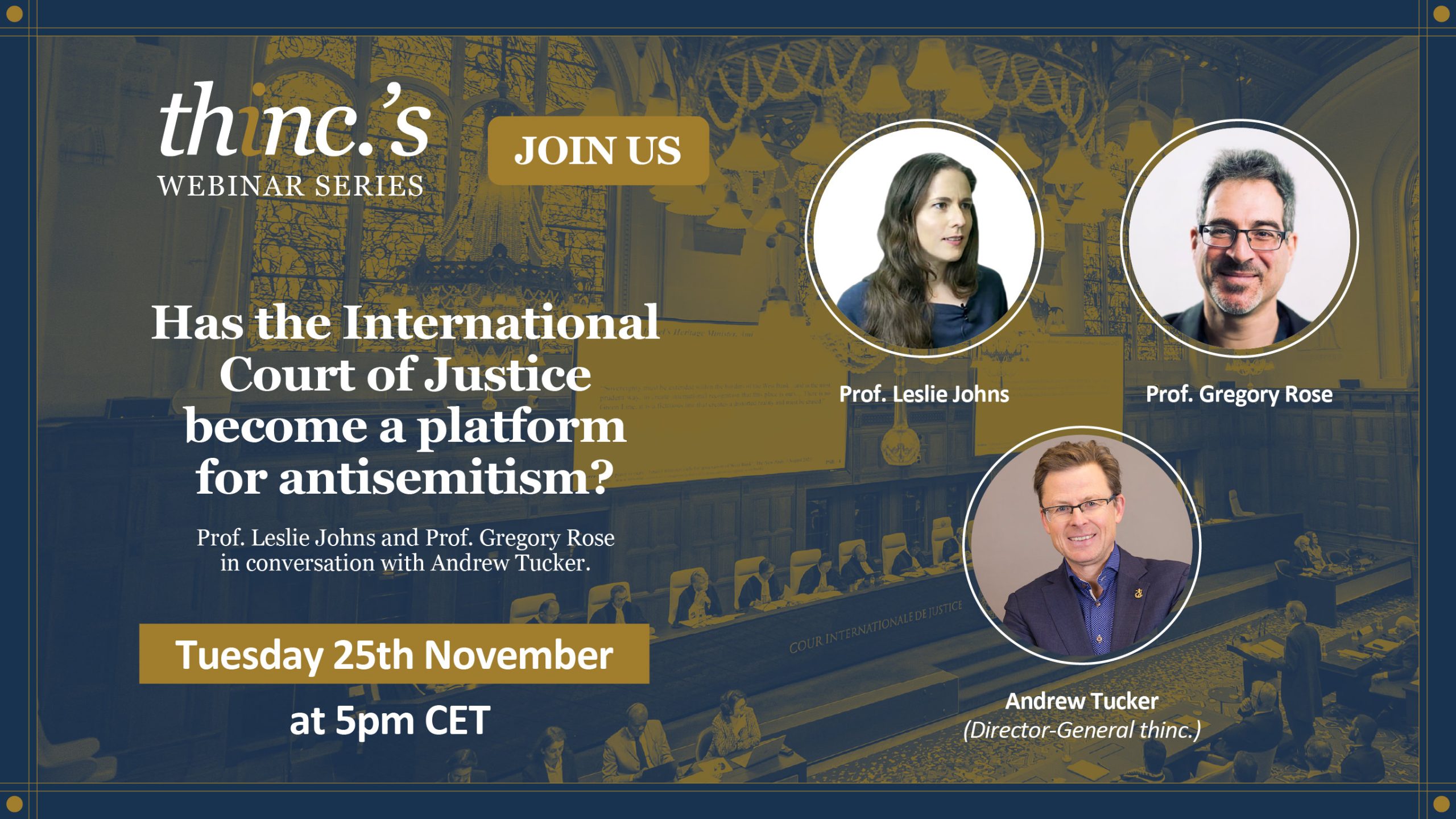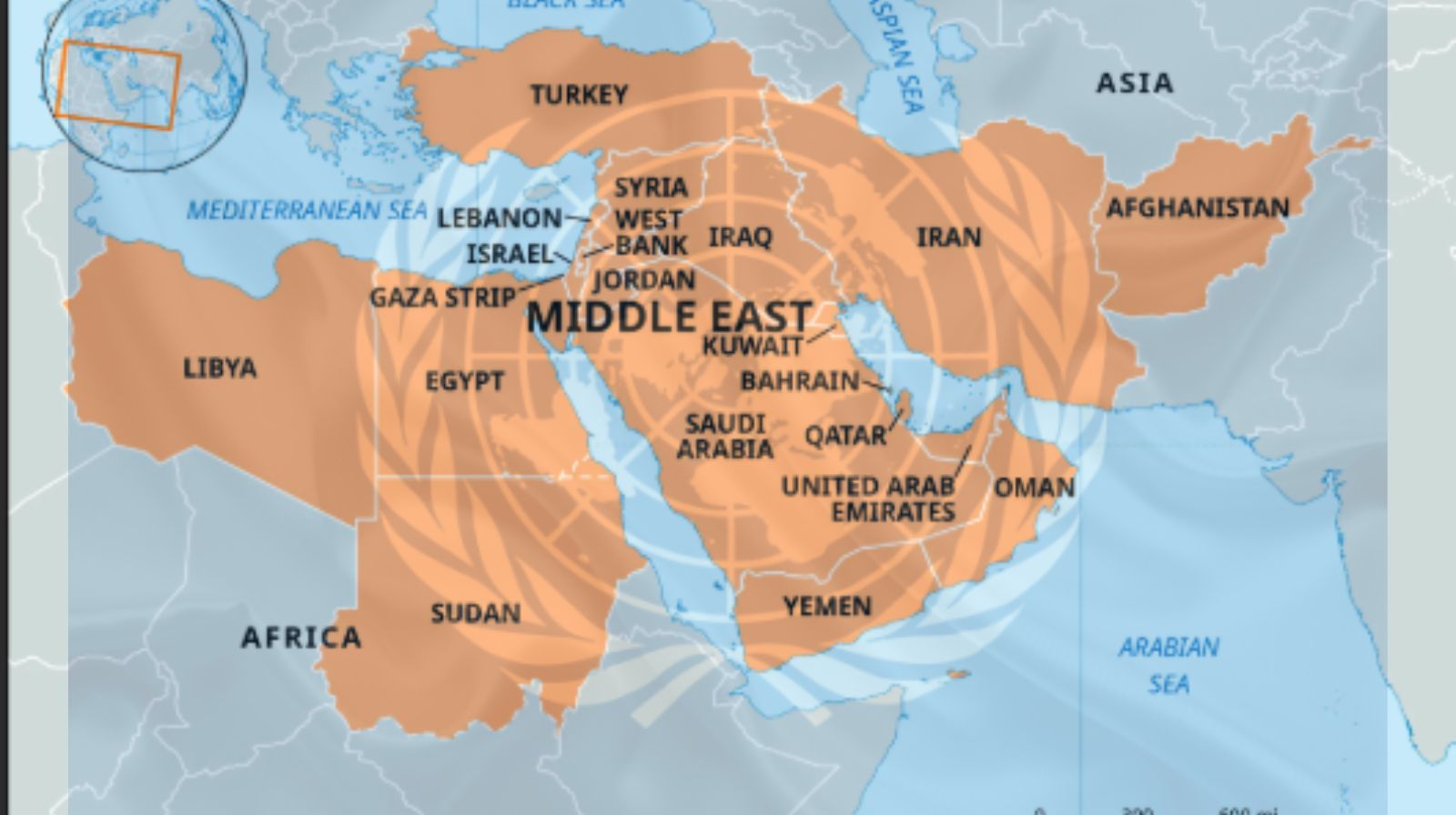The Hague Initiative for International Cooperation (thinc.) is deeply concerned by recent announcements by several states – including the United Kingdom, France, Canada and Australia – that they intend to formally recognise Palestinian statehood at the upcoming UN General Assembly in September.
This decision sends a dangerous signal that terrorism – including the horrific October 7 attacks – and longstanding Palestinian intransigence yield concessions. The fact that Hamas praised the decision should give pause to the nations concerned. Moreover, the decision undermines international law and established norms for defining statehood.
Unilateral recognition violates the Oslo Accords, a treaty that remains binding on both parties. The Accords defer determination of borders to final status negotiations and preclude actions that prejudice either party’s rights in this regard. Disregarding the Accords for the sake of symbolic recognition sets a troubling precedent that treaties – as legally binding instruments – can be cast aside for political expediency. This risks undermining the rule of law and treaty obligations everywhere – a cornerstone of stable international relations.
Additionally, recognition does not confer statehood; rather, a prospective state must satisfy the established criteria under international law. This is essential for maintaining stability and coherence within the international system. “Palestine” fails to meet the established legal criteria for statehood under Article 1 of the Montevideo Convention on the Rights and Duties of States (1933). The four legal requirements are: permanent population, defined territory, effective government, and capacity to enter foreign relations.
The requirement for defined territory does not necessitate perfectly settled borders, but it does require a consistent, identifiable area over which a state exercises sovereign authority. The Oslo Accords constrain the Palestinian Authority’s (PA) ability to exercise sovereignty over defined borders by granting it only limited self-governance in certain areas, pending a negotiated settlement – until then, the borders remain disputed. Additionally, as per the Accords, Israel still exercises control over parts of the West Bank. Meanwhile, the Palestinian territories have been divided since Hamas overthrew the PA and took control in 2007. These factors prevent the PA from functioning as a unified and effective government over a defined territory.
Moreover, while the PA engages in some diplomatic activities, its divided governance and limited authority in areas under Israeli control also hinder its capacity to consistently conduct foreign relations as a sovereign entity. Taken together, these factors demonstrate that Palestine does not satisfy the criteria for statehood.
thinc. also rejects the notion that the right to self-determination necessarily entails a right to full statehood. International law recognises self-determination as a fundamental principle, but it does not guarantee statehood as an outcome. In multiple cases, such as that of Western Sahara, autonomy arrangements have been pursued over statehood. Given the longstanding failure to reach a negotiated two-state solution, thinc. recommends the international community explore alternative solutions to statehood that may be more appropriate to establish lasting peace.
thinc. also considers that the conflict cannot be resolved without meaningful reform of the Palestinian leadership, including addressing its endemic corruption, institutional promotion of antisemitism and enablement of terrorism. In the absence of such changes, recognition will only further entrench radicalisation and leave Israel with insecure borders. Moreover, the Palestinian people would be better served by long-term reform and institution-building under legitimate local leadership, grounded in a genuine acceptance of Israel’s right to exist, rather than premature recognition that only reinforces the authority of the current PA.
thinc. urges the international community to reverse course and vote against recognition of Palestinian statehood at the UN General Assembly. Instead, states should encourage reform within the Palestinian leadership, support the defeat of Hamas, explore alternative options to statehood and advocate for a return to the negotiating table in accordance with existing legal agreements.



